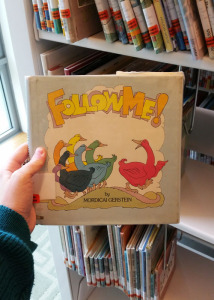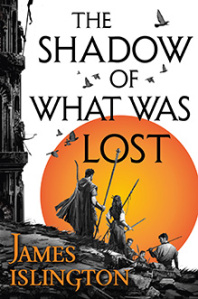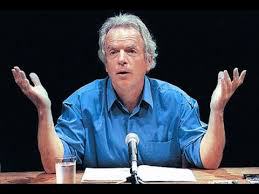
Spalding Gray
June 5, 1941 – January 11, 2004
In my last post, I wrote about a memoir by Pamela Paul, editor of The New York Times Book Review. When I read Ms. Paul’s memoir My Life with Bob, I discovered we both were fans of the acclaimed actor/author Spalding Gray.
Ms. Paul wrote of her fervent desire to have lunch with Spalding Gray, but that never came to pass. However, I did have lunch with him, but my time with the brilliant raconteur did not go well.
I wrote about my miserable lunch with Spalding Gray. It’s preceded by an account of my first “grown-up” job and my chronic dysthymia, now known as persistent depressive disorder. How I wish we could do our lunch over again in 2017. He’d still be with us, a grandfather perhaps. I’d be 100% more confident compared to how I felt in 1992.
While it’s not exactly an uplifting read, I hope you find it interesting.

I drank my first cup of coffee at age twenty-two.
The momentous event occurred on day one of my entry-level, full-time job. I had been hired to be the office manager of Silicon Events, a special event production company. After years of part-time jobs, it was a shock to suddenly work a long stretch of tense, busy hours five days a week. I was slow to get going at the 8:30 a.m. starting time, but once I drank that first cup of coffee, I became much peppier thanks to the zip of caffeine. Moreover, I was surprised to discover how much I enjoyed the taste of French roast. My love affair with java had begun, and I took full advantage of the Mr. Coffee machine located five feet from my desk.
Because Silicon Events had a skeleton crew of four employees, each of us did a myriad of duties. The lion’s share of my job included standard office tasks such as accounting, filing, and answering phones. As time went on, my responsibilities became more diverse, challenging and interesting, especially when I began working at our summer events.
I assisted Colin, the dark-haired, slightly stocky director, and his wife Sheryl, the company’s creative director. She was a beautiful olive-skinned blonde with expressive brown eyes. I worked alongside the development coordinator named Blake, a tall surfer who was atypically driven compared to the other laid-back Santa Cruz surfers I knew.
Our office was a three-hundred-square-foot room, and since we didn’t have cubicles, we could overhear one another’s phone conversations. While sound barriers would’ve helped, they also would’ve made the small room even more cramped. We eventually got used to blocking out the others’ voices, and Colin was often out of the office, resulting in one less distraction.
My job kept me on my toes, literally and figuratively. Silicon Events produced weekend musical events in Silicon Valley that attracted thousands of attendees. These festivals featured world-famous musicians such as Etta James and Crosby & Nash. Due to his former career in the concert industry, Colin was well connected in the music business and he had an outstanding reputation.
This was my first experience working closely with a perfectionist. One of my primary duties was answering the phone. Our callers ranged from big-time talent agents who represented Ray Charles and Willie Nelson to mellow Santa Cruz shaved ice vendors hoping to rent a booth at our next festival. None of them knew we worked out of an office not much bigger than a closet.
Colin wanted his staff to be professional and give callers the impression we worked in a sophisticated agency. If I made a mistake during a conversation, he’d usually overhear me and brusquely correct me the moment I hung up the phone. At least he didn’t yell, but I felt humiliated and stupid for making errors. I was young and new to office procedures—it was to be expected I’d need time to learn. After a couple of months, I finally started getting the hang of the policies and I became a valued member of the company.
I loved working with Sheryl. She was funny, creative, and caring, and she complimented me on my hard work, attention to detail, and my interpersonal skills. I never grew tired of Sheryl’s appreciation of my strengths. Her faith in my abilities boosted my confidence. I knew how lucky I was to have her in my corner.
Blake was only a couple years older than me and he became a brother figure. Like Sheryl, he was a blast to work with and the three of us often joked around. Blake was always willing to help me with a work project if I hit a snag. I frequently picked his exceptionally intelligent brain. I knew he was bound for greatness and I turned out to be correct; ten years later he’d become a successful district attorney.
Blake and I thrived in our first “grown-up” jobs, and we operated as a family unit more than as a staff. There was dysfunction among us, as there is with any family, but I worked at the company for over four years.
At work, I developed good relationships with a variety of people including talent agents, government agency representatives, and media contacts. I coordinated hundreds of food, art and craft vendors who participated in the annual summer festivals we produced. What kept me from looking for another job was feeling valued, interacting with talented people, and the excitement of producing a special event.
However, the start of almost every workday, a thick depression would hit me hard. At 8:00 a.m. I’d sit in my Jetta in the parking lot, dreading the moment I’d have to force myself to walk twenty feet to the office where I’d don a fake smile. As anyone could imagine, it was exhausting to live that way on a daily basis. No one ever questioned me about my mood, and I was relieved I wasn’t found out outright. I worried if I revealed how bad I felt, I’d lose my job. I didn’t confide in friends or family nor did I seek counseling, which would have been immensely helpful. My only outlet was writing in my journals.
When I sat down in my chair to begin work, I was able to ignore my low mood. I drank a few cups of coffee and the buzz helped lift me out of lethargy. Being busy helped me to stop ruminating about how terrible I felt. When I answered the phones I faked an upbeat tone, calling upon my latent acting talent to be as convincing as possible. I returned home each night to my beloved Sheltie dog Tara, my journal, and an empty studio, pessimistic and deeply lonely.

Villa Montalvo Center for the Arts
One fall morning at work I found out Spalding Gray, one of my favorite authors, would be performing at Villa Montalvo. The villa was a stunning Italian Mediterranean-style mansion nestled in the foothills of the Santa Cruz Mountains. Villa Montalvo was an ideal place to see a performance and the expensive ticket prices didn’t stop the venue from quickly selling out every show.
Spalding Gray was known for his signature monologues in which he sat behind a plain wooden desk on an empty, dim stage. His performances include Swimming to Cambodia about his experience filming The Killing Fields, Monster In A Box about writing his only novel, and Gray’s Anatomy about his diagnosis with a rare ocular condition called “macular pucker” which can cause blurred, distorted vision.
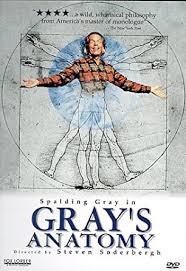
He often played the role of a doctor in films due to his intellectual air, a shock of white hair and his trademark Rhode Island accent. Producer/actress Fran Drescher handpicked him to play the psychiatrist in her hit television show The Nanny. Spalding Grays’ performance as the Stage Manager in a revival of Thornton Wilder’s play Our Town was so outstanding it would’ve made Thornton Wilder proud.

A couple of years before his Villa Montalvo visit, I attended Spalding Gray’s sold-out Santa Cruz show Monster In A Box. The audience was riveted during his performance—you really could’ve heard a pin drop in that room. He had an endearing, fascinating quality about him. It was incredible to observe how he seamlessly incorporated humor, pathos, and brilliant insights. Despite some disturbing truths he had revealed about himself in his monologues and books, Spalding Gray inspired me.
Despite some disturbing truths he had revealed about himself in his monologues and books, Spalding Gray inspired me.
Silicon Events worked for Villa Montalvo, and I didn’t hesitate to ask if I could serve as Spalding Gray’s production assistant. After being granted permission, I helped fulfill his production rider (contract) requirements. Some performers’ riders could contain notoriously high-maintenance demands such as providing a bowl of a particular color M&M candy in the dressing room. Luckily Spalding Gray’s rider requirements weren’t too difficult. There were only a few slightly unusual requests such as hiring a shiatsu masseuse to help relax him before his show.

The day Spalding Gray came to town, I rented a new gold Pathfinder (my dream car at the time) at my expense. My Jetta was showing its wear and I thought I could impress Spalding Gray with a nice car! I nervously drove to his hotel to pick him up and take him to lunch at the Good Earth restaurant in affluent Los Gatos.
To my utter humiliation and disappointment, our meal was a horror show.
After we had sat down, I puffed up with pride and said magnanimously, “Mr. Gray, I’m treating you to lunch! Get whatever you’d like!”
He murmured a distracted “thanks” as his eyes perused the menu.
I’m sure he assumed Villa Montalvo was treating him. Perhaps if he knew I was paying out of my meager pocket, he might have softened a bit.
My attempt to appear calm didn’t work. Rivulets of sweat from my armpits created dark shadows on my pretty silk pink blouse. As we sat across from one another at a small table in the harsh sunlight, I was in such a dither that he got visibly annoyed with me.
He declared, “You’re jagged!”
Jagged? What the hell kind of word is jagged? I thought.
It was apparent from Spalding Gray’s derisive tone that being jagged was most definitely not a good thing. My face flamed red and beads of sweat popped out on my upper lip. I wanted to sprint out the restaurant door and run twenty-two miles to Santa Cruz so I could hide in my studio.
I didn’t know what retort I could make, so I went with my old standby.
“I’m sorry,” I mumbled, unable to meet his eyes.
I hastily finished my cashew chicken salad sandwich and strawberry fruit smoothie. He had ordered the same entrée as me. We busied ourselves eating since our conversation had taken its nosedive. I was surprised no one recognized him – maybe people were scared to ask for autographs because of the negative energy surrounding us.
While I might have gotten away with being “jagged” with another actor, Spalding Gray was known for his moodiness. I naïvely thought I could charm the actor. However, I didn’t anticipate I’d become so jittery I’d alienate him.
After lunch, I brought the actor back to his hotel so he could have a shiatsu massage I had arranged with “Yoko.” I was exhausted from our brief interchange, but there was still work to do. After the show, I went backstage and met Spalding Gray’s girlfriend and work partner Kathie Russo. She was lovely, gracious, and welcoming to all of Spalding Gray’s fans, even the jagged ones.
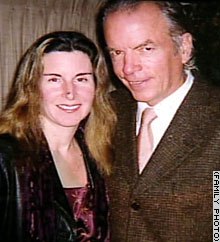
Spalding Gray and Kathie Russo
Although our time together had been an ordeal, my shame melted over time and I continued to keep up with Spalding Gray’s new books and films. I read about his early years in which his mother, a Christian Scientist who had untreated bipolar disorder, died by suicide. I read that Spalding Gray suffered from recurring depression and some of his physicians suspected he might have bipolar disorder. Then I read about his horrific car accident in 2001.
While traveling in Ireland, Spalding Gray was in a car crash in which he had terrible injuries including a skull fracture. He fell into a deep depression following the accident. He consulted with the famous neurologist Dr. Oliver Sacks, the doctor portrayed by Robin Williams in the Academy Award-nominated film Awakenings. His general outlook grew worse and in 2004, he went missing. At age sixty-two, Spalding Gray jumped off the Staten Island Ferry to his death in the freezing water, but it took two months for his body to be found. His family was agony as they waited for the news. He left behind Kathie, their two sons, and his stepdaughter.
When I heard the news about Spalding Gray’s death, my first thought was, What a horrible, horrible way to die! I felt so sorry for his family, especially since it took such a long time for them to learn what had happened to him. No wife or child should ever go through such hell.
I hope with all my heart he is now at peace.
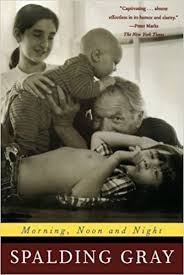
One of my favorite Spalding Gray books: Morning, Noon and Night
Birth of a New Brain – Healing from Postpartum Bipolar Disorder With a foreword by perinatal psychiatrist and author Dr. Carol Henshaw, now available on Amazon.

- More


